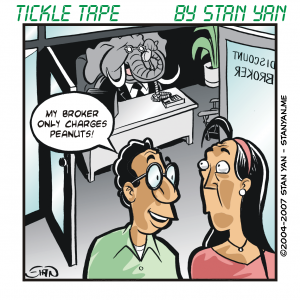We are sometimes the victims of our past experiences, but it doesn’t have to be that way. Mastering the markets requires one to make trade after trade. Many times traders are executed flawlessly, but there are times when we choke. It may be that we weren’t paying enough attention or that market events didn’t line up just right, but we ended up closing out a trade at a loss. If we aren’t careful, we can let our past mistakes bias the way we see things, what we anticipate in the future.
We learn to avoid pain early. When we first touched a hot stovetop, we recoiled instinctively to avoid further pain, and similarly, when we entered a trade impulsively and took a big hit to our trading account, we may have hesitated out of self-doubt the next time we found ourselves in similar circumstances. Our past experiences colour our expectations, sometimes positively and sometimes negatively. When novice traders experience early success, they tend to seek out risks.
They overestimate their abilities and take unnecessary risks because they falsely believe they have skills and abilities that they just don’t have. It’s possible for the seasoned trader to feel the opposite. A more experienced trader, for example, may come across a bout of bad luck, and suddenly, he or she may unnecessarily question his or her abilities, sometimes paralyzed with self-doubt. In the end, it is vital to learn to recover quickly from setbacks. The past doesn’t necessarily need to colour what you think about the future.
A wise person learns from his or her mistakes. There’s no point in reinventing the wheel. This is true in life and it is often true of trading. If you make a risky trade without proper risk management, you can wipe out your trading account.
The traders who survive learn to manage risk or suffer the consequences. Similarly, if in past trades you failed to account for adverse events, such as an upcoming holiday, a scheduled rate hike, or earnings or product reports, you’ll be careful next time to account for these events. It is useful to learn some basic rules of the game. But conventional wisdom is true only when it is true. That’s what makes trading a challenge. There are times when one does everything “right” yet things just don’t work out. The best-devised trading plan can fail because market conditions just weren’t right.
There’s nothing you can really do about it, and over-analyzing the past isn’t going to get you very far. There are times when the past tells you nothing about the future, so it is better to just press on. Over-analysis often leads to self-doubt and paralysis. In addition, focusing on the past tends to make you feel anxious and act impulsively, and it definitely distracts from a clear, concerted focus on one’s immediate experience. And managing an ongoing trade under current market conditions is all that matters in the end.
The past can have a powerful impact on our future perceptions if you let it. It is essential that you gain awareness of how your past experiences may bias your view of the future. If you are a novice trader who has had a run of good luck, it may be essential that you don’t get a swelled head and trade with overconfidence. If you are a seasoned trader with a solid track record who has merely encountered a run of bad luck, it is vital to pick yourself up, think optimistically and get back into the trading grove.
Although we can learn a great deal from our past, it is important to let go of it at times. Don’t over-analyze it. Learn what you can and just move on. The more you can focus on your immediate experience, the current trade, rather than mull over the past, the more profits you’ll realize.


